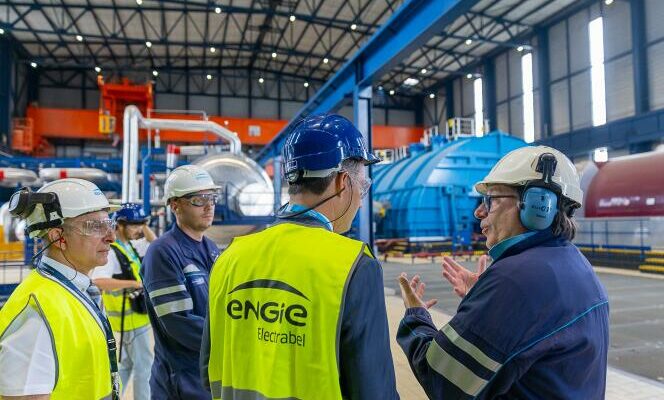According to those who, on the Belgian side, negotiated it, it is indeed the “deal of the century”: the government of liberal Alexander De Croo ratified, on the night of Tuesday December 12 to Wednesday December 13, an agreement concluded with the energy group Engie on the future of nuclear power. In particular, it provides for the extension of two reactors for ten years.
This contract closes, in principle, political debates which lasted twenty years. After a decision in principle on the complete closure of the nuclear fleet in 2003, what followed was marked by constant reversals.
At the end of 2020, the principle of phasing out nuclear power was, however, reaffirmed, and Engie confirmed the decision. In August 2022, the government, a coalition of seven parties including the Greens, was nevertheless forced to review its copy: the fear of supply disruptions for the following winters was fueled by the war in Ukraine and the problems of the French nuclear fleet, on which the country’s food supply partly depended.
The alternative solutions envisaged (gas power plants, a battery park, the development of wind power, etc.) proving insufficient, or impossible to implement in the short term, the idea of an extension of two of the seven reactors of the country, Doel 4 in Flanders and Tihange 3 in Wallonia, has imposed itself on everyone, including environmentalists.
Engie in a strong position
Engie was now in a position of strength and could impose its conditions. Especially since the company had highlighted the technical difficulties and fuel supply problems linked to an extension. Even if they were the most recent, and capable of providing the 2 gigawatts necessary to avoid a blackout, Doel 4 and Tihange 3 required a shutdown for an upgrade, before a restart for ten years, in 2026.
Also making a change of heart, the Federal Nuclear Control Authority (AFCN) however proposed, in February, to grant the operator a period of three additional years for this revision, in order to allow the operation of the two reactors during from winter 2025-2026. The leaders of the AFCN had until then rejected such a scenario, citing security problems.
Other terms of the tentative agreement still needed to be negotiated. At the end of June, a final heated confrontation between Mr. De Croo and Catherine MacGregor, the energy company’s managing director, threatened to derail everything. Ultimately, it was an intervention by Emmanuel Macron, following a conversation he had on April 24 with the Belgian Prime Minister, during a North Sea Summit in Ostend, which would have allowed the file to be unblocked.
You have 45% of this article left to read. The rest is reserved for subscribers.
